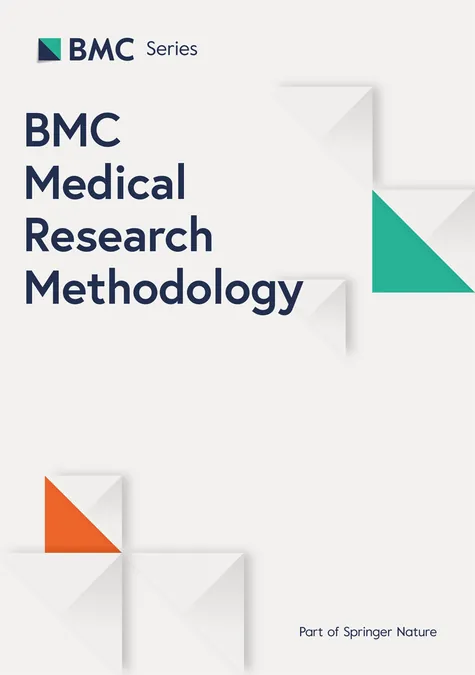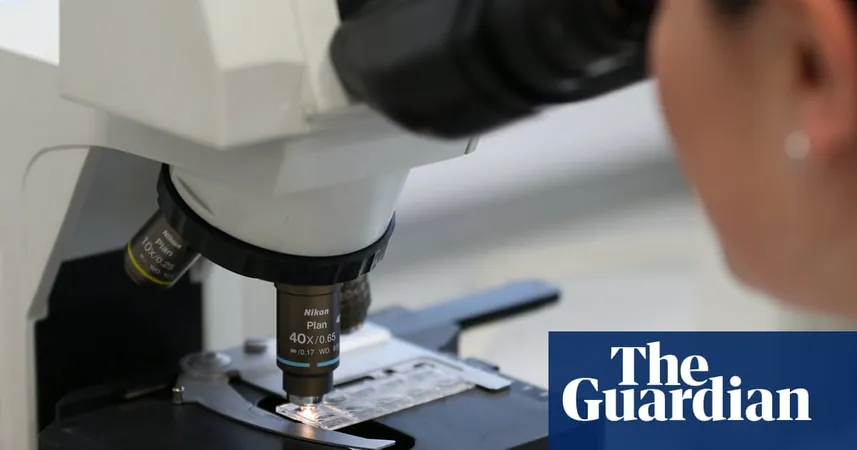
Breaking Ground: The Launch of a Revolutionary Cancer Patients Database Using NHANES Data
2025-01-24
Author: Siti
In a groundbreaking move for cancer epidemiology, researchers have constructed a new cancer patients database utilizing the extensive datasets from the U.S. National Health and Nutrition Examination Survey (NHANES). This initiative aims to bridge gaps in cancer history data that have impeded public health research, enhancing our ability to understand and combat cancer on a population level.
Why NHANES Matters for Cancer Research
NHANES, conducted by the National Center for Health Statistics (NCHS) under the CDC, is a vital tool in public health, combining interviews, physical exams, and laboratory tests. Since its inception, NHANES has employed a sophisticated multistage probability sampling design, ensuring the data reflects the health and nutritional status of the diverse U.S. civilian population, including oversampling of older adults and racial/ethnic minorities. This thoroughness is crucial for identifying health disparities.
However, despite its wealth of information on chronic diseases and risk factors, NHANES has lacked a consistent and comprehensive set of questions regarding cancer history. The existing variables, which have changed over survey cycles, complicate the data's utility for researchers. For instance, questions about cancer diagnoses and types varied significantly between the 1999-2000 and 2017-2018 cycles. Researchers found it challenging to use these variables effectively due to their inconsistent naming and structure.
The Solution: A Unified Cancer Database
Recognizing this limitation, a team of researchers embarked on developing a cancer patients database from the NHANES datasets using advanced R programming techniques. This new database simplifies the extraction of cancer history for participants, empowering researchers to conduct more detailed and accurate cancer epidemiology studies.
But why create a new database when global sources like the International Agency for Research on Cancer's Cancer Today exist? The answer lies in NHANES’s individual-level data, which allows for rich, detailed analyses. While Cancer Today compiles high-level statistics on incidence and mortality rates regionally and nationally, NHANES collects direct health information from individuals, making it better suited for nuanced epidemiological studies linking cancer with environmental or lifestyle factors.
Proven Potential Through Real-World Applications
The practical implications of this new database are already becoming apparent. A recent study published in January 2024 employed NHANES data to investigate the links between certain pollutants—per- and polyfluoroalkyl substances (PFAS)—and various types of cancer. This research revealed alarming associations: for instance, brain cancer exhibited an odds ratio of 8.16 for increased PFHxS exposure. Such findings emphasize the urgent need for further exploration into the environmental determinants of cancer.
Researchers also noted that NHANES has significant potential in environmental health research, expanding our understanding of how pollutants affect cancer prevalence and outcomes among diverse populations.
Overcoming Limitations for Effective Research
One significant challenge for researchers is ensuring that the time frame for cancer diagnoses doesn’t lead to reverse causation—where the presence of cancer may itself increase exposure to carcinogens rather than the other way around. By examining cancer diagnoses within a defined time period before the survey, researchers minimize this risk.
Moreover, the database construction ensures that the vital cancer history data—including type and age of diagnosis—is standardized across survey cycles. This organization is essential for comparative studies and trend analysis over time.
A Bright Future for Cancer Epidemiology
The creation of this cancer patients database signals a transformative step in public health research. It not only provides a reliable tool for studying cancer epidemiology but also highlights the importance of integrating individual-level health data with environmental exposure metrics. As we push forward into the realm of equitable healthcare solutions, this database will be instrumental in uncovering the relationships between lifestyle, environment, and cancer—potentially paving the way for significant advancements in prevention and treatment strategies.
Stay tuned, as research fueled by this innovative database could lead to groundbreaking discoveries in cancer treatment and prevention strategies, altering the landscape of public health initiatives for years to come!




 Brasil (PT)
Brasil (PT)
 Canada (EN)
Canada (EN)
 Chile (ES)
Chile (ES)
 Česko (CS)
Česko (CS)
 대한민국 (KO)
대한민국 (KO)
 España (ES)
España (ES)
 France (FR)
France (FR)
 Hong Kong (EN)
Hong Kong (EN)
 Italia (IT)
Italia (IT)
 日本 (JA)
日本 (JA)
 Magyarország (HU)
Magyarország (HU)
 Norge (NO)
Norge (NO)
 Polska (PL)
Polska (PL)
 Schweiz (DE)
Schweiz (DE)
 Singapore (EN)
Singapore (EN)
 Sverige (SV)
Sverige (SV)
 Suomi (FI)
Suomi (FI)
 Türkiye (TR)
Türkiye (TR)
 الإمارات العربية المتحدة (AR)
الإمارات العربية المتحدة (AR)